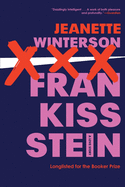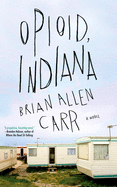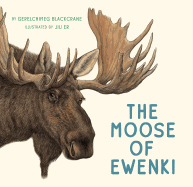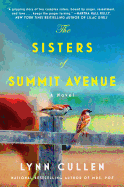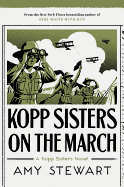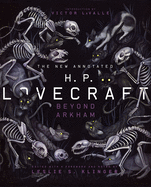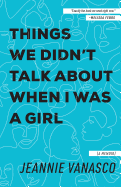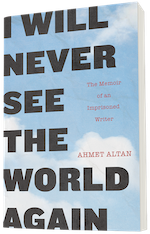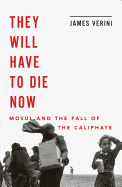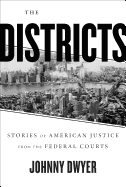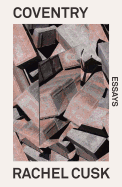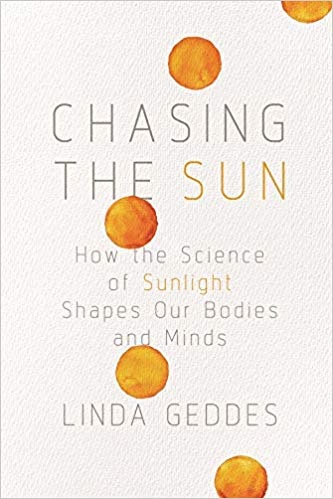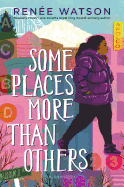Tuesday, October 1, 2019
I love a well-crafted poetry collection as much as the next reader. But most often, I'm hankering for a story when I read. True or fictional, I want a compelling narrative, well told. Fortunately, many poets have turned their wordsmithing skills to prose, and their novels and memoirs are some of my favorites.
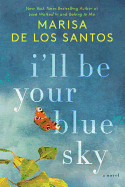 Marisa de los Santos began her career with the poetry collection From the Bones Out (Univ. of South Carolina, $14.95), but has found major success with her fiction, including Love Walked In (Penguin, $17); Belong to Me (HarperCollins, $14.99); and I'll Be Your Blue Sky (HarperCollins, $16.99). Her prose is simple, warmhearted and truly lovely, as are many of her characters.
Marisa de los Santos began her career with the poetry collection From the Bones Out (Univ. of South Carolina, $14.95), but has found major success with her fiction, including Love Walked In (Penguin, $17); Belong to Me (HarperCollins, $14.99); and I'll Be Your Blue Sky (HarperCollins, $16.99). Her prose is simple, warmhearted and truly lovely, as are many of her characters.
 Former U.S. poet laureate Tracy K. Smith has published four books of poetry, including the 2019 collection Wade in the Water (Graywolf, $16). Her memoir, Ordinary Light (Knopf, $16), chronicles her childhood in California, her deep and loving (and sometimes fraught) relationship with her mother, and her journey toward poet as vocation. Her prose is as luminous and (sometimes) as sharp-edged as her poems.
Former U.S. poet laureate Tracy K. Smith has published four books of poetry, including the 2019 collection Wade in the Water (Graywolf, $16). Her memoir, Ordinary Light (Knopf, $16), chronicles her childhood in California, her deep and loving (and sometimes fraught) relationship with her mother, and her journey toward poet as vocation. Her prose is as luminous and (sometimes) as sharp-edged as her poems.
 Brian Doyle, the late editor of Portland magazine, wrote anything and everything: poems, prose poems, rambling essays, rollicking or thoughtful novels like Chicago (Picador, $17) and Mink River (Oregon State Univ. Press, $18.95). I'll read any and all of his work, though my absolute favorite is his brief essay on how he became a writer.
Brian Doyle, the late editor of Portland magazine, wrote anything and everything: poems, prose poems, rambling essays, rollicking or thoughtful novels like Chicago (Picador, $17) and Mink River (Oregon State Univ. Press, $18.95). I'll read any and all of his work, though my absolute favorite is his brief essay on how he became a writer.
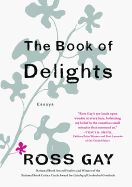 Poet Ross Gay (Catalog of Unabashed Gratitude, Univ. of Pittsburgh Press, $17) spent his 43rd year capturing ordinary joyful moments almost every day, and spinning them into "essayettes" that became his collection The Book of Delights (Algonquin, $23.95). Like the subject matter, the result is delightful--both the mosaic of quotidian, unexpected pleasures, and Gay's commentary on them.
Poet Ross Gay (Catalog of Unabashed Gratitude, Univ. of Pittsburgh Press, $17) spent his 43rd year capturing ordinary joyful moments almost every day, and spinning them into "essayettes" that became his collection The Book of Delights (Algonquin, $23.95). Like the subject matter, the result is delightful--both the mosaic of quotidian, unexpected pleasures, and Gay's commentary on them.
For readers who appreciate a well-turned phrase and an engaging story arc, poets who write prose offer the best of both literary worlds. --Katie Noah Gibson, blogger at Cakes, Tea and Dreams
Frankissstein
by Jeanette Winterson
This fiendishly brilliant romp across time from Whitbread Prize-winner Jeanette Winterson (Oranges Are Not the Only Fruit; The Gap of Time) is the rollicking, philosophical novel of human rights, gender constructs, artificial intelligence and sexbots the world didn't realize it needed.
During a rain-soaked holiday at Lake Geneva in 1816, young Mary Shelley and company huddle indoors, struggling to stave off boredom with alcohol and conversation. A debate over the nature of the human soul results in Lord Byron challenging all assembled to write tales of the supernatural. Mary pens the seminal sci-fi/horror novel Frankenstein, but her story does not end with its writing.
In an interwoven narrative set in Brexit Britain, transgender doctor Ry Shelley falls under the spell of AI expert, genius and "high-functioning madman" Victor Stein, who eroticizes Ry's "doubleness." Stein envisions a world in which "humans will be like decayed gentry" while AI and human minds uploaded to robotic bodies take over as the dominant species, and he sees Ry's physical modifications as emblematic of that future. To that end, he pursues ethically questionable research in secret, with Ry lifting body parts from the cryogenics facility where he works to supply his lover's laboratory. While Victor sets his cap at upgrading humanity, Ry also keeps bumping into up-and-coming sexbot manufacturer Ron Lord, whose decidedly lower aim is to capitalize on men's basest desires.
Winterson's wit crackles in nimble dialogue and eminently quotable assessments of human nature as Mary and Ry face absurd and heartbreaking truths. Wise, bittersweet and cackle-inducing, Frankissstein looks in wonder and weariness at the cyclical nature of progress. --Jaclyn Fulwood, blogger at Infinite Reads
Discover: Whitbread Prize-winner Jeanette Winterson draws a direct line from Mary Shelley to a trans doctor bedeviled by his mad scientist lover in this funny, incisive triumph.
Opioid, Indiana
by Brian Allen Carr
Brian Allen Carr (Sip) offers a nod to The Catcher in the Rye in his oddly charming, bittersweet novel Opioid, Indiana.
It's a fresh take on the coming-of-age novel, capturing adolescence in the age of Trump, mass shootings and drug addiction. The main character is Riggle, a white, 17-year-old "struggler" from south Texas who has moved to a small Midwest town he calls "Opioid, Indiana" to mask its real name. Having lost both parents in his youth and been recycled through foster care, Riggle now lives with his drug-addicted uncle and his uncle's girlfriend, Peggy, whom he has a crush on. When he's suspended from school, Riggle sets out to find his uncle--who has gone missing in a drug binge--and to make enough money to pay rent and save Peggy. Each day brings a new adventure as Riggle encounters a host of small-town characters: racists, conspiracists, general oddballs and a number of adults who seem alien in their ignorance of the times. At the beginning of each day, Riggle recalls Remote, the shadow-puppet his late mom used to explain how the days got their names. With illustrations of Remote, Carr crafts an entire mythos around his young hero.
Opioid, Indiana is lyrical in unexpected ways. Despite his slangy diction, Riggle's voice rings with innocence--as he openly questions the stupidity of racism; as he mulls over the recent school shooting in Florida and wonders about his teachers and classmates; as he gets a job washing dishes and explains in poetic detail the way the dishwater affects his psyche. Carr uses this misfit lyricism to create a distinctly American character: scrappy, sullied, but sincere in heart. His emotions are never forced. Riggle blooms in the gloom of that Midwestern winter. What irony he uses to grapple with life never blinds him to humanity, which speaks to Carr's talent in balancing tones.
Opioid, Indiana is one of the best novels of the year, a work of small miracles. --Scott Neuffer, writer, poet, editor of trampset
Discover: This unforgettable coming-of-age novel features a scrappy 17-year-old narrator living in the age of Trump.
The Sisters of Summit Avenue
by Lynn Cullen
Christmas morning of 1908, Santa brought Ruth a set of jacks while June received a lovely blonde doll. The sisters' fates seem predestined. By 1934, June is a wealthy doctor's wife working as a Betty Crocker, writing recipes in the Gold Medal Test Kitchen. Ruth toils on the family farm, caring for four kids and a bedridden husband. The Sisters of Summit Avenue, not surprisingly, are estranged yet linked by love and loyalty. As Lynn Cullen (Mrs. Poe, Twain's End) tells their story, their secrets reveal the complexities of their relationship as well as the suffering of a Depression-era nation.
The sisters' childhoods are recalled as inequitable, but the real schism comes in 1921, when John is courting June. June is plagued by self-doubts, and her ambivalence leaves Ruth an opening--she snags the handsome farmer. In spite of her subsequent marriage and wealth, June is unhappy. Ruth, meanwhile, is immersed in motherhood, and after John contracts the mysterious "sleeping sickness" sweeping the country and becomes bedridden, she struggles endlessly. The sisters' sorrows, however, are matched in a third storyline: their mother has a deep, painful history that is never revealed yet infuses her every decision.
Cullen's carefully woven plot and sensitive character development are enhanced by her historic detail. A young Ruth and John dance the Charleston; in stark contrast just 12 years later, Ruth, exhausted, struggles to survive a dust storm. As "a Betty," June markets Gold Medal to a "plain penny-squeezing Jane," in a groundbreaking marketing technique. Eventually, honesty opens the door to renewing the family's affections, and together the women enter the 1950s as a confident, loving team. --Cheryl Krocker McKeon, manager, Book Passage, San Francisco
Discover: Two sisters overcome a lifetime of envy and the vagaries of the Depression in a historic novel set in the first half of the 20th century.
Mystery & Thriller
Kopp Sisters on the March
by Amy Stewart
Constance Kopp has found a fulfilling career as the first female deputy sheriff in the U.S. But after being fired from her job by a new sheriff, Constance is bored and frustrated--not to mention depressed. In her fifth novel, Kopp Sisters on the March, Amy Stewart takes Constance and her sisters, Norma and Fleurette, in a new direction, sending them to a National Service School camp to train for war work.
Stewart (Miss Kopp Just Won't Quit) blends real-life facts about the National Service camps with the Kopp sisters' colorful personalities in her narrative. Though the camps claim to prepare women for battle, Constance is disappointed to realize the courses mostly consist of bandage-rolling and other "feminine" tasks. But when the camp matron is injured, Constance is thrust into a position of authority, while Norma shows off her trained pigeons and Fleurette tries to organize (and make costumes for) camp theatricals. Meanwhile, their tentmate is hiding a secret: she's posing as society girl Roxanna Collins, but she's really Beulah Binford, a poor, uneducated Richmond girl running from a scandal that landed her in the papers. Stewart shifts between the women's adventures at camp (including secret rifle practices in the woods) and Beulah's sordid life story, using both narrative strands to comment on the era's pervasive sexism and double standards for women. While less of a traditional mystery than Stewart's previous books, Constance's fifth adventure is still a smart, witty, richly detailed slice of little-known but fascinating history. --Katie Noah Gibson, blogger at Cakes, Tea and Dreams
Discover: Amy Stewart sends the Kopp sisters to a military training camp in her fifth mystery novel.
Science Fiction & Fantasy
The New Annotated H.P. Lovecraft: Beyond Arkham
by H.P. Lovecraft
In the past 10 years, the cosmic horror and weird fiction of H.P. Lovecraft (1890-1937) has seen increasing popularity as well as critical interest. Now Liveright is releasing a second volume of his work, after 2014's The New Annotated H.P. Lovecraft, complete with analysis and biographical information. Beyond Arkham collects 25 stories alongside key images, an index of story locations and annotations by editor Leslie S. Klinger (In the Shadow of Agatha Christie). And while these books are likely best for fans of the Providence, R.I., writer, newer readers will appreciate how Klinger--and novelist Victor LaValle's introduction--puts Lovecraft's fiction into historical perspective.
Klinger's notes throughout are exhaustive, providing context for Lovecraft's classicism and often esoteric references. To his credit, Klinger is as rigorous about Lovecraft's bigotry as he is on his literary influences; both LaValle and Klinger write insightfully about how the man's repellent views influenced his body of work while refusing to dismiss him as a whole. As for Lovecraft's stories themselves, they continue to be captivating even when inconsistent in quality. His imagination created (or perhaps revealed) a terrifying universe so indifferent to humanity's existence that it could drive the characters of "The Rats in the Walls" and "Dagon" to madness. And in 2019, as the Internet and social media create a kind of constant awareness of everything, Lovecraft's fear of unlimited knowledge now seems prophetic. The commentaries, context and images contained within Beyond Arkham are a testament to Lovecraft as a writer of real vision and insight. --C.M. Crockford, freelance reviewer
Discover: This second volume of annotated Lovecraft stories is perfect for scholars and horror geeks alike.
Biography & Memoir
Things We Didn't Talk About When I Was a Girl: A Memoir
by Jeannie Vanasco
Mark was one of Jeannie's best friends in high school and early college--until the night when she got drunk for the first time and he sexually assaulted her. By the definition of the times, that's what it was called: sexual assault. Under the FBI's legal definition as of 2013, it is called rape.
Words matter. And so Jeannie Vanasco delivers Things We Didn't Talk About When I Was a Girl, a thoughtful, conflicted, harrowing examination of what Mark did--with his words alongside her own.
From the outset, she worries about the fallout from her choice to include Mark: she feels she should hate him, and she doesn't want to be a bad feminist. But Mark was such a good friend; many of her memories of him remain positive ones. "I doubt I'm the only woman sexually assaulted by a friend and confused about her feelings." Like her first book, Things We Didn't Talk About When I Was a Girl is aware of itself, frequently commenting on process and prospective readership. This kind of self-regard is difficult to pull off, but it is clearly Vanasco's natural style, and she wields it expertly.
The memoir alternates between transcriptions of recorded conversations between Jeannie and Mark, and Vanasco's reactions to those recordings. Some of her brave and difficult work here is to consider the line between good and bad people, and good and bad actions. This narrator is tough, vulnerable and meticulous; the resulting memoir is heartfelt, painful and essential. --Julia Kastner, librarian and blogger at pagesofjulia
Discover: Jeannie Vanasco's reckoning with her rapist of 14 years earlier--once a close friend--is distressing, brave and crucial.
I Will Never See the World Again: The Memoir of an Imprisoned Writer
by Ahmet Altan, transl. by Yasemin Çongar
In 2017, Turkish journalist and novelist Ahmet Altan sat in the back of a police car, on his way to prison. He had just received a life sentence without the possibility of parole. A policeman in the car with him offered a cigarette. Altan refused it. "I only smoke," he told the policeman, "when I am nervous."
Altan, of course, had long had reason to be nervous. The failed coup in July 2016 had resulted in a crackdown by Erdoğan's government on dissent, and journalists were being arrested by the dozen. Altan's sentence was handed down following a sham trial--Kafkaesque in its absurdity, by Altan's estimation--after he was found guilty on charges of conveying "subliminal messages."
Written from prison, Altan's memoir I Will Never See the World Again offers his reflections on imprisonment, writing and freedom. The memoir reaches the world by way of friend and translator Yasemin Çongar, who was granted occasional contact by phone with Altan and was permitted to receive personal notes from him through Altan's lawyer. Gathered from November 2017 to May 2018, these meditative letters comprise the memoir. Each becomes its own brief chapter, exploring topics both internally and externally centered.
Altan sketches his early-morning arrest in the first essay, "A Single Sentence." He is arrested at dawn. As he waits while officers search his house, he puts on a kettle for tea--just as his father, a Turkish politican, had done 45 years before, during his own arrest. And the history repeats itself in multiples: Altan's brother, also a journalist, is arrested the very same morning.
In the essay addressing his sentencing--in which the policeman offers him a cigarette--Altan admits that he'd never before thought about the circumstances under which he would smoke; the words just came out of his mouth like air: "It was as if someone inside me, a person whom I could not exactly call 'I' but who nevertheless spoke with my voice, through my mouth, and who was therefore a part of me, said as he was being transported in a police car to an iron cage that he only smoked when he was 'nervous.' That single sentence suddenly changed everything."
What changed? Altan felt a sudden tear in the fabric of his reality; through language--through the power of crafting his own narrative of the world around him--he could regain control. Otherwise enclosed in every sense, Altan wrestles with how to construct an outlook reclaiming some semblance of freedom. In his mind half of the time, he can be lost in thought, in his own world. The other half sees him addressing the world at hand: his cell in the prison Silivri, two hours' drive from Istanbul. His cell mates and 11,000 or so fellow inmates. His daily, still-frozen cheese sandwiches. His steel sink. His iron bed.
Altan basks in the freedom afforded by his mind, his focus on his words allowing him the agency of crafting, creating, even forgetting. "Forgetting," he eventually argues, "is the greatest source of freedom a person can have." Writing itself becomes "a magical paradox," which "enables you not only to forget but also to be remembered," ultimately allowing him a sense of control and continued consequence.
After Altan is convicted and sentenced to life without parole, alone in his cell, he does finally light a cigarette. Then another. But Altan continues to occupy a space that is simultaneously in his cell and outside of it. "You can imprison me but you cannot keep me here," he writes. "Because, like all writers, I have magic. I can pass through your walls with ease." He finds freedom through his words, and through his readers. Altan speaks directly to us, his readers, his friends: "Besides, I have friends all around the world who help me travel, most of whom I have never met. Each eye that reads what I have written, each voice that repeats my name holds my hand like a little cloud and flies me over the lowlands, the springs, the forests, the seas, the towns and their streets."
Though more than 50 Nobel Laureates, along with many authors, publishers and organizations, have called for his release, as of now his sentence has been upheld. But Altan is not broken; "[It's] a rite of passage for any writer to spend time in prison," he says with a laugh, chatting with his lawyer during a visit. For now, readers can afford him at least the freedom of reading and appreciating his words, carrying them around the world, asserting them in thoughts, actions and ideas, commuting his sentences into guidelines for more consciously living our own lives. --Katie Weed
History
They Will Have to Die Now: Mosul and the Fall of the Caliphate
by James Verini
They Will Have to Die Now is a powerful work of reportage and history providing a frontline account of the Battle of Mosul, in 2016-2017. A flurry of hysterical media attention covered the Islamic State's sudden, shocking takeover of large parts of northern Iraq, but journalist James Verini's book is concerned with the less sensational aftermath: the slow, bitter fighting by the Iraqi military, the Kurdish Peshmerga and various other groups that desire to recapture Caliphate territory. The recapture of Mosul, an enormous, populous city with an ancient history "would effectively mean the end of the Caliphate as a place, if not the Islamic State as an idea." Much of Verini's book details the often mundane, occasionally terrifying process of Iraqi forces advancing through Mosul, neighborhood by neighborhood.
Verini has an eye for small details that add up to something larger. In one aside, he reflects on khubz, the dense bread that was ubiquitous on the battlefield: "Some days it seemed the whole war was fueled by khubz." Verini also reflects at length on the history of Mosul and Nineveh, an ancient city that Mosul now encompasses, occupied by great conquerors from the Assyrians to the British. In the Battle of Mosul, ancient history seems to collide with smartphones and WhatsApp. This gives rise to horrors--"Everyone knew someone who'd been killed on the Internet"--and absurdities--"The jihadis took selfies, too. A disturbingly high percentage of them included house cats." They Will Have to Die Now is a brilliant account of this strange new era of warfare. --Hank Stephenson, manuscript reader, the Sun magazine
Discover: They Will Have to Die Now is a front-line account of the Battle of Mosul that uses history and dark humor to explore the waning days of the Islamic State's Caliphate.
Political Science
The Districts: Stories of American Justice from the Federal Courts
by Johnny Dwyer
New York State has four federal courts. Two of these, the Southern and the Eastern District Courts, are located within New York City, with the Southern District known as "the most competitive and coveted U.S Attorney's Office in the nation."
In The Districts, Johnny Dwyer (American Warlord), claims the Southern District outshines the Eastern only because of "the cult of personality surrounding the head of their office." Many former United States Attorneys for the Southern District are famous: Rudy Giuliani, James Comey, Preet Bharara. But both courts exceed the national average in convictions against defendants. "When a line prosecutor in New York City types a name on a charging document, there is only one expectation: victory."
Dwyer seems to have a soft spot for the Eastern District. Three of his court narratives take place there: Mafia wise guys who never made it big, a college student returning from a visit to Jamaica with cocaine in her luggage and a 17-year-old who was "held in solitary confinement for nearly six months" on charges of "attempting to support the Islamic State." These are stories that threaten to make the white-collar criminals of the Southern District turn pale and fade away.
Still, Dwyer makes it clear that the majesty and power of the Southern District Court is unassailable. This is where Wall Street criminality and political corruption receive punishment. This is where Michael Cohen was convicted. This is where history is made.
And in both of these courts, Dwyer reminds readers, this is "where we still turn to address the most fundamental human longing: justice." --Janet Brown, author and former bookseller
Discover: The Districts, with its careful research and stunning details, is an unforgettable and compelling history of New York City's two federal courts.
Essays & Criticism
Coventry
by Rachel Cusk
Following her Outline trilogy, a series of novels that challenged the boundaries of genre, Rachel Cusk offers a collection of essays that explore her most poignant thematic preoccupations. The collection is split into three distinct sections: Coventry, A Tragic Pastime, and Classics and Bestsellers. Part one consists of personal essays that begin with deeply private moments--from her estrangement with her parents to her divorce--only to expand into larger meditations on femininity and motherhood. A Tragic Pastime, which melds personal essay with criticism, contains pieces that look more directly at questions of art and writing practice. Finally, Classics and Bestsellers uses criticism as a form to make larger social and artistic commentaries about canon, genre and the power of literature to impact the larger socio-political world.
Part memoir, part literary criticism, part personal essay, Coventry, like Cusk's previous works, presses upon the boundaries of genre to provide something wholly new and endlessly thoughtful. Essays like "Coventry," "Lions on Leashes" and "Aftermath" are particularly moving meditations on the ways in which the personal and the universal interact. As the collection continues, Cusk's razor-sharp insights and intellect rip open the fabric that might have contained these anecdotal pieces to release a larger model for how criticism, art, literature, feminism and domestic life may not only interact but depend and feed on one another. A ravenous and witty continuation of Cusk's talent, Coventry is the beginning of a new chapter both for Cusk and our literary landscape. --Alice Martin, freelance writer and editor
Discover: Coventry is a reflective exercise in self-disclosure and criticism that continues to cement Rachel Cusk as a landmark voice in contemporary literature.
Science
Chasing the Sun: How the Science of Sunlight Shapes Our Bodies and Minds
by Linda Geddes
Linda Geddes (Bumpology) illuminates the importance of one singular star in our human lives with Chasing the Sun: How the Science of Sunlight Shapes Our Bodies and Minds. The sun is life, allowing photosynthesis, warming the earth, providing solar power. It's no wonder humans have long worshipped it. We have "assimilated starlight into the very fabric of our beings."
People have resorted to the sun for medical purposes since early times, as well, and it is health and wellbeing that concerns Geddes in this lively, enlightening study. Circadian rhythms, her research reveals, are vital to many aspects of human life, governing blood pressure, body temperature, alertness, immune reactions, sleep cycles and quality and much more. "Almost half of our genes are under circadian control, including ones associated with every major illness investigated so far." In other words, the importance of sunlight to human existence can scarcely be overstated.
While helpful to those interested in seasonal affective disorder or jet lag, this journey to the sun and back will certainly expose any reader to new concerns and marvels as well. Chasing the Sun offers many sobering lessons (sunlight and sleep cycles are life-and-death issues) and helpful tips (the utility of melatonin and vitamin D, and the importance of putting down that smartphone at least 30 minutes before bedtime). Geddes brings a sense of wonder to her work that is infectious and makes scientific and medical concepts easy to understand through simple, serviceable prose. Caution: Chasing the Sun may inspire readers to try eating by candlelight and waking with the sun. --Julia Kastner, librarian and blogger at pagesofjulia
Discover: This broad study of the sun's power over humankind, even in an age of electric lights and bright screens, is both absorbing and potentially life-changing.
Children's & Young Adult
The Moose of Ewenki
by Gerelchimeg Blackcrane, illus. by Jiu Er, transl. by Helen Mixter
From the Reindeer Ewenki people of remote, mountainous Inner Mongolia comes a glorious tale about an aging hunter and the baby moose that followed him home. During an all-night hunting trip, Gree Shek killed a moose, not knowing she had calved out of season. Too young to be afraid, the baby somehow trusted that Gree Shek and his loyal dog would be his protectors. Gree Shek named him Xiao Han ("Little Moose") and raised him with the Ewenki's reindeer herds, though the moose never wandered far from Gree Shek's side. When an injury sends Gree Shek to the village settlement for treatment, Xiao Han won't be left behind... but the human world proves full of dangers. As the elderly Gree Shek grows weaker, he must figure out how to keep Xiao Han safe.
Real-life stories of motherless animal/human bonds have long provided literary inspiration. More unusual perhaps, is The Moose of Ewenki, not only because of the unexpected creature and its rarely depicted traditional surroundings, but also for the book's provenance: while Gerelchimeg Blackcrane (Black Flame) is a significant, bestselling author in China, his Mongolian background is a rarity among translated international children's writers. His extraordinary narrative is gorgeously paired with Chinese sculptor/painter Jiu Er's exquisitely detailed illustrations that rely on a simple palette of browns, greens and pinks to create resonating depth. Most hauntingly unforgettable are Xiao Han's eyes as he matures from trembling calf to curious mischief-maker to trusting companion to forest guardian. Fair warning: tissues are an absolute must. An exceptionally affecting commemoration of unusual bonds, Blackcrane's formidable U.S. picture book debut should engender increased demand for Western access to more of his dozens of titles. --Terry Hong, Smithsonian BookDragon
Discover: Mongolian writer Gerelchimeg Blackcrane makes his U.S. picture book debut with this haunting story about a hunter and a young moose.
Some Places More Than Others
by Renée Watson
Amara wants nothing more than to spend her upcoming 12th birthday in New York City. Despite using all the arguments in her arsenal--including pointing out that her extended family lives there--her mother says no, believing that New York City is "no place for a little girl." A place for her or not, Amara wants to spend time with her New York family because she knows so little about them: she only speaks with her grandfather on the phone for special occasions; her Aunt Tracey has come to Beaverton, Ore., to visit, but Amara's family never returns the favor. Her desire to know her family better increases when she discovers that her father hasn't talked to her Grandfather Earl in 12 years, their last words spoken on the day Amara was born and her Grandma Grace died--could Amara be at fault?
Luckily, an opportunity to investigate her family arises at school in the form of "The Suitcase Project," a time-capsule assignment that requires students look into their family histories. The project sends Amara on a quest--with her mother's reluctant approval--to Harlem to reconnect with her family. Amara has two goals in mind: discover what happened in her family's past and help mend her father and grandfather's relationship.
Renée Watson (Betty Before X) perfectly encapsulates in Amara the sincere, authentic voice of a young girl struggling to form a personal identity through her family and their culture. The city comes alive as Watson's Some Places More Than Others tells a deep and emotionally rich coming-of-age story about reuniting severed ties and exploring history, ancestry and selfhood. --Tasneem Daud, blogger and booktuber, Nemo Reads
Discover: Eleven-year-old Amara, journeying to New York City hoping to mend family bonds, learns that connecting with her roots can help her find herself.


